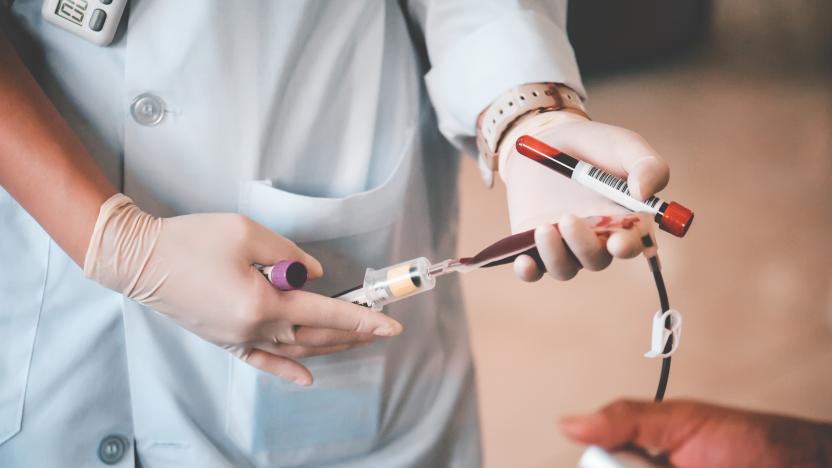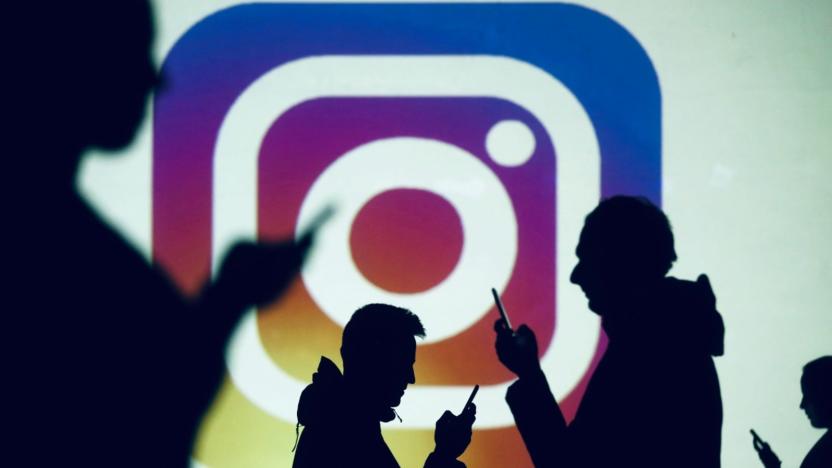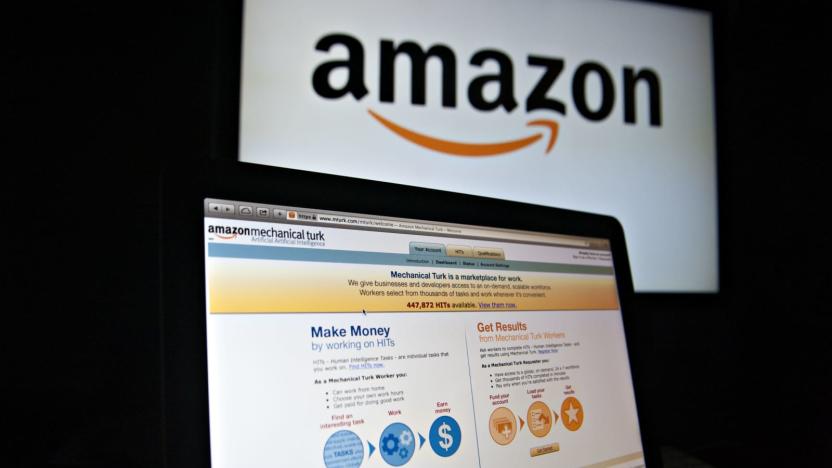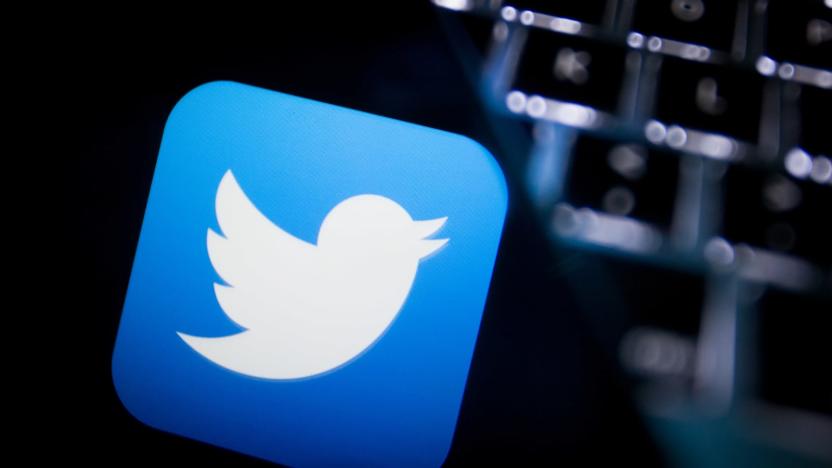bot
Latest

Snapchat adds OpenAI-powered chatbot and proactively apologizes for what it might say
Snap announced today that it’s adding an OpenAI chatbot (similar to ChatGPT) to Snapchat. “My AI” is an experimental feature initially available for $3.99-per-month Snapchat+ subscribers.

All Twitter bot accounts can now include a label to show they're automated
The company says the label will help other users figure out which accounts to follow and interact with.

Let this eerily accurate AI dunk on your Spotify habits
It's a scientifically accurate representation of just how basic your taste is.

This tiny robotic beetle travels for two hours without a battery
This tiny, autonomous robotic beetle runs on liquid methanol.

Amazon is testing its Scout delivery robots in Georgia and Tennessee
Amazon expands tests for its Scout delivery robot to Atlanta and Franklin, Tennessee.

Microsoft blood bot helps recovered COVID-19 patients donate plasma
Microsoft’s Plasma Bot is a screening tool meant to help recovered COVID-19 patients donate their plasma to treatment efforts.

Online sneaker drop cancelled thanks to bots
Nike SB -- the company's skateboarding division -- teamed up with Strangelove Skateboards to produce a pair of limited edition Valentine's Day Dunks. The pink and red color scheme was an instant hit with sneakerheads, and Strangelove planned to release the shoes on its website over the weekend. However, bots -- which are programmed to purchase sneakers faster than any human could -- broke into the online store and wreaked havoc. As a result, Strangelove was forced to cancel the online release outright, and advised customers to hunt down a pair of the sneakers at their nearest brick-and-mortar dealer. At this point, it seems like bots have gone from a shady line-cutting tactic to a full-on headache for retailers.

OpenAI published the tool that writes disturbingly believable fake news
In February, OpenAI announced that it had developed an algorithm that could write believable fake news and spam. Deciding that power was too dangerous to unleash, OpenAI planned a staged release so that it could offer pieces of the tech and analyze how it was used. Now, OpenAI says it has seen "no strong evidence of misuse," and this week, it published the full AI.

Recommended Reading: Your AirPods are going to die
Everyone's AirPods will die. We've got the trick to replacing them. Geoffrey A. Fowler, The Washington Post If you hopped on the AirPod bandwagon early, your earbuds are likely near the end of their life. The Washington Post details what happens when your true wireless audio accessory stops working, including the fact that "battery service" really just means giving you a new pair and tossing your old ones in the recycling bin.

Porn bots are now storming Twitter's trending topics
Instagram isn't the only social media app being invaded by porn bots. Now they're on Twitter, too. For the past few days, as I was scrolling through Twitter's trending section, I noticed a number of accounts showing similar behavior as the bots that have taken over Instagram comments. But, whereas on Instagram they're leaving messages like "We gonna ignore the fact that I've GOT A HUGE BOOTY?" or "DON'T LOOK at my STORY, if you don't want to M A S T U R B A T E !" on Twitter the spam also includes pictures of women in bikinis and a bunch of words relevant to topics currently trending on Twitter. And they're even more brazen in their attempts to lure in gullible readers, with messages like "I moan very much during sex, if this does not scare you, call me on whatsapp."

Social media bots are damaging our democracy
Social media has become our town crier. When major news breaks, roughly two-thirds of American adults now find out about it online in real-time. But the aftermath of the week's third mass shooting, environmental catastrophe or political meltdown is often rife with false claims, misinformation, and outright conspiracy theories. Some of this comes simply from the confusion surrounding the unfolding situation but to an increasing degree, the discussions around these events are being deliberately -- and effectively -- influenced by an army of autonomous digital actors.

Instagram’s 'huge booty' problem keeps getting worse
There isn't a day when I don't come across comments from bots on Instagram. They're all over the place. But there's nothing they love more than to spam high-profile pages with millions of followers. Whether it's LeBron James, Kim Kardashian, ESPN or Ariana Grande, their posts are often the target of comments such as "We gonna ignore the fact that I've GOT A HUGE BOOTY?" or "DON'T LOOK at my STORY, if you don't want to M A S T U R B A T E !" Behind these, are fake accounts featuring pictures and videos of naked and half-naked women, whose primary goal is to get people to sign up for shady porn sites. This has become a serious problem for Instagram, one that seems to be getting worse by the day and that the company needs to get a handle on, before it gets more out of control.

Many of the Brexit Party's Twitter followers appear to be bots
It's not shocking to see Twitter bots latch on to a political campaign, but it's not often they do so soon after a campaign starts -- let alone on a large scale. That appears to be the case with the UK's Brexit Party, however. The no-deal EU withdrawal party is only a few months old, but researchers talking to BuzzFeed News found that many of its Twitter accounts are networks of bots and other inauthentic users. The exact amount isn't clear, but F-Secure's Andy Patel noted that over 8,800 users -- roughly 7 percent of the party's Twitter base -- were both recently recreated and disproportionately responsible for retweeting party material.

Bots have invaded Instagram comments
The last thing I expected to find on Instagram was someone telling me not to look at their Story if I didn't want to masturbate. But that comment, which I can only assume was intended reverse psychology, wasn't just directed at me. It was left on a post from Sky Sports and, thanks to the thousands of likes garnered by the comment, it was the first thing the account's 2.7 million followers would see when they looked at the comments on that picture. There are similar comments all over Instagram, particularly on high-profile pages with millions of followers. And they have one thing in common: They're spam profiles with pictures and videos of naked and half-naked women, which were created to get you to look at their accounts and then have you sign up for shady pornographic sites.

The drop
When Nike launched its Air Jordan XI "Concord," in 2011, there were incidents of violence reported at several shopping malls in the US. Back then, most shoe stores sold pairs on a first-come, first-served basis, which led to physical fights between people who were trying to line up outside their local shop. A lot has changed. Over the past few years, sportswear giants like Nike and Adidas have turned to technology to make sneaker shopping safer, particularly for highly coveted models. And there's no better example of this digital-first strategy than the drop of the long-awaited 2018 edition of the Concord XIs, which re-released on December 8th without any chaos, thanks in large part to mobile apps like Nike's SNKRS.

Google's new reCAPTCHA doesn't require a click
Google first launched its bot-detection reCAPTCHA system in 2007, which means that for over 10 years we've been deciphering garbled text, identifying street lights and clicking tiny boxes in a bid to prove we're human and subsequently access the sites and pages we want to view. But not anymore. Google's reCAPTCHA v3 completely eliminates the need for user interaction, instead relying on adaptive risk analysis to pick up suspicious traffic.

Twitter is considering a transparency report on suspended accounts
As part of his testimony before the Senate Intelligence Committee today, in a hearing titled "Foreign Influence Operations' Use of Social Media Platforms," Twitter CEO Jack Dorsey said that his company is exploring the idea of a transparency report for suspended accounts. He said that, while details of what this document would look like or what information exactly it could include are still being worked out, it's something that's heavily on his mind. Twitter already has a bi-annual transparency report which discloses how many accounts it removes for promoting terrorism, and Dorsey said doing something similar for suspended accounts would only be a matter of figuring out its implementation.

Bots on Amazon's task service may be souring psych studies
It's not uncommon for scientists to use Amazon's Mechanical Turk for research -- they can quickly gather survey data in return for a small outlay to participants. Academics are quickly discovering the limits of the task service with the modern bot-happy internet, however. Numerous psychology researchers have reported a sharp rise in the number of junk responses to their questions, many of which appear to come from bots. The offenders not only spam nonsensical answers to questions (such as "nice" or "good"), but tend to originate from the same location. And while anti-bot measures like captchas are in use, they aren't always reliable.

Facebook improves AI by sending 'tourist bots' to a virtual NYC
As a general rule, AI isn't great at using new info to make better sense of existing info. Facebook thinks it has a clever (if unusual) way to explore solutions to this problem: send AI on a virtual vacation. It recently conducted an experiment that had a "tourist" bot with 360-degee photos try to find its way around New York City's Hell's Kitchen area with the help of a "guide" bot using 2D maps. The digital tourist had to describe where it was based on what it could see, giving the guide a point of reference it can use to offer directions.

Study says Twitter bots share 66 percent of links to popular websites
The Pew Research Center has just released a report detailing the role Twitter bots play in spreading links from popular websites. Researchers analyzed around 1.2 million tweets posted by 140,545 accounts between July 27th and September 11th, 2017 that shared links to 2,315 popular websites. And they found that bots play a larger role than humans do in sharing those links. Of all of the tweeted links included in the study, 66 percent were shared by what appear to be bots. And 22 percent of tweets with links to popular news and current event sites were posted by the top 500 most-active suspected bot accounts. Comparatively, the 500 most-active human accounts were only responsible for six percent of tweeted links to those types of sites.









